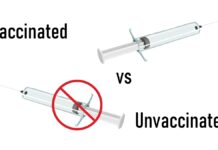The researchers suggest that increased biological age, characteristic of accelerated aging, may contribute to the development of early-onset cancers.
New research suggests a surge in cancer among younger adults may be the result of “accelerated aging,” according to a study presented at the American Association for Cancer Research’s annual meeting in San Diego, held April 5–10.
“Multiple cancer types are becoming increasingly common among younger adults in the United States and globally,” said Ruiyi Tian, a graduate student at the Washington University School of Medicine in St. Louis, Missouri. “Understanding the factors driving this increase will be key to improve the prevention or early detection of cancers in younger and future generations.”
The National Institutes of Health supported the study.
The researchers suggest that increased biological age, characteristic of accelerated aging, may contribute to the development of early-onset cancers, defined as those occurring in adults younger than 55.
Biological age refers to the condition of a person’s body and physiological processes, which are considered modifiable. A person’s chronological age refers to the number of years they have been alive.
“Unlike chronological age, biological age may be influenced by factors such as diet, physical activity, mental health, and environmental stressors,” Ms. Tian said. “Accumulating evidence suggests that the younger generations may be aging more swiftly than anticipated, likely due to earlier exposure to various risk factors and environmental insults. However, the impact of accelerated aging on early-onset cancer development remains unclear.”
The increasing rates of colon cancer among young people have drawn concern among the medical community.
Last year, the American Cancer Society reported that 20 percent of colon cancer diagnoses were among people under 55, nearly double the rate in 1995. It also found that the rates of advanced disease increased by about 3 percent in those younger than 50.
Evaluating the Data
Ms. Tian and her colleagues examined data from more than 148,000 people in the United Kingdom Biobank database.
Each of the participants’ biological age was calculated based on nine biomarkers found in their blood: albumin, alkaline phosphatase, creatinine, C-reactive protein, glucose, mean corpuscular volume, red cell distribution width, white blood cell count, and lymphocyte proportion. Those whose biological age was found to be higher than their chronological age were considered to have accelerated aging.














































